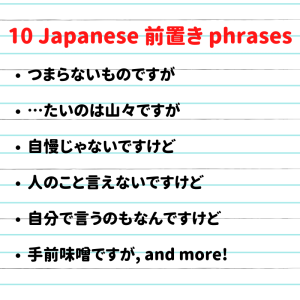This post explains the four meanings of 坊主 (Bouzu) in Japanese with example sentences for each, plus a relevant idiom and expression to it.
Table of Contents
Meaning 1: shaved hair
This is the basic and most common meaning of 坊主 in Japanese. It is also called 坊主頭 (ぼうずあたま, “bouzu hair”). There is also a fashion term called オシャレ坊主, meaning “fashionable bouzu hairstyle”, which rather describes a very short hairstyle of men rather than a shaved hair (and hence it isn’t considered as 坊主 by genuine bouzu-hair people; besides, the term has been getting outdated).
Example
うちの学校で野球部に入るには坊主 (or 坊主頭) にしなければならないので、入るのをやめた。
Since you’ve gotta shave your head to join the baseball club at our school, I decided not to join it.
* This is still a very common (and controversial) practice at Japanese school clubs, and in fact lots of students quit or give up playing baseball because of this.
Meaning 2: a (Japanese Buddhist) monk
坊主 can also refer to Japanese Buddhist monks because they usually have shaved hair. Note that it doesn’t sound very polite (well, apparently it doesn’t sound quite nice to call someone with their hairstyle), so it’s better to use お坊(ぼう)さん (or more respectfully, お坊さま) to describe them.
Example
(* The following sentence is one of the most famous Japanese tongue twisters.)
坊主が屏風に上手に坊主の絵を描いた。
(ぼうず が びょうぶ に じょうず に ぼうず の え を かいた)
A monk drew a picture of a monk well on Byoubu (= a Japanese traditional folding screen used to partition a room, which is often decorated with paintings and calligraphies).
Meaning 3: (Hey) Boys/Kids/Guys
While this is not very common nowadays, 坊主 is also used as an informal and old-man-ish way to refer to a boy in a condescending manner, as in おい坊主 (“hey kids/boys”). This is because a lot of Japanese boys used to have 坊主 (shaved) hair in the Showa era (1926~1989). If you’ve ever seen the Japanese anime “Case Closed”, aka “Detective Conan”, you may have heard Kogoro Mouri calling Conan “Bouzu”.
Example
おい坊主, ここで何してる?
Hey kid/boy(s), what are you doing here?
Meaning 4: to come back from fishing, empty-handed
Interestingly — while this meaning is far less common than the first two — 坊主 can also mean “go fishing and come back without catching any fish”. This meaning is presumably derived from the first meaning: “shaved (no) hair”.
Example
今日は坊主だったから、仕方なくスーパーで魚を買った。
Since I couldn’t catch any fish today, I had to buy some fish at a supermarket.
Related Idiom: 三日坊主 (みっかぼうず, “Three-Day Monk”)
三日坊主 is a very famous (and relatable) Japanese idiom that literally means “three-day monk” and figuratively “to start something new (e.g. going to a gym) and quite very soon, like within three days”. This used to refer to a person who has been determined to be a monk, and gives it up in three days because of the hardship.
Example
ダイエットを始めたけど、三日坊主だった
I started going on a diet but quit very soon (couldn’t stick to it).
More details are at:


Leave a Reply